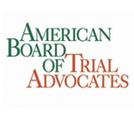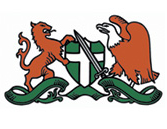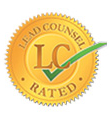In the exhilarating world of motorcycle riding, the freedom of the open road often comes hand-in-hand with the potential for unforeseen challenges. Unfortunately, the thrill of the ride can be abruptly disrupted by a motorcycle accident, leaving riders with severe injuries, emotional distress, and financial burdens.
If you find yourself grappling with the aftermath of a motorcycle collision, you may find yourself wondering about the process of pursuing compensation. This article discusses how motorcycle accident lawsuits work and how you can utilize them to get fair compensation.
When to Initiate a Lawsuit After a Motorcycle Accident
In California, the timeframe for instituting a personal injury claim, including motorcycle accidents, is typically two years from the date of the accident. The statute of limitations serves as a time limit within which a person must institute a lawsuit after undergoing harm or injury.
Failing to initiate legal action within the specified timeframe may result in the loss of the right to seek compensation for damages related to the motorcycle accident. It is advisable for individuals who have been involved in a motorcycle accident to promptly consult with a personal injury attorney to ensure that they take appropriate action within the prescribed two-year timeframe.
Identifying the Liable Party in a Motorcycle Accident
Determining liability in a motorcycle accident is critical to pursuing compensation for injuries and damages. Identifying the responsible party involves a thorough investigation into the circumstances surrounding the accident.
Here are key factors to consider when determining liability in a motorcycle accident:
- Negligence — Establishing negligence is fundamental in personal injury cases. If the other party (often the driver of another vehicle) acted carelessly or failed to exercise reasonable caution, they may be deemed negligent. Common examples include speeding, distracted driving, or disobeying traffic signals.
- Traffic violations — Violating traffic laws can be a clear indicator of liability. If the other party involved in the accident committed a traffic offense, such as running a red light or failing to yield the right of way, they might be held responsible for the collision.
- Witness statements — Eyewitness accounts can provide valuable perspectives on the events leading up to the accident. Collect statements from individuals who witnessed the incident, as their observations can contribute to establishing liability.
- Police reports — Law enforcement officers often respond to accident scenes and create official reports. These reports can contain crucial information, including statements from involved parties, assessments of fault, and any citations issued.
- Video footage — Surveillance cameras, dash cams, or footage from nearby businesses may provide visual evidence of the accident. Video evidence can be instrumental in reconstructing the events and determining liability.
- Road conditions and weather — External factors such as poor or adverse road conditions sometimes contribute to accidents. If these conditions played a role, liability may extend beyond the actions of the parties involved to include entities responsible for road maintenance or safety.
- Manufacturer defects — In some cases, a motorcycle accident may result from a defect in the motorcycle itself. The manufacturer or distributor may be held liable if a manufacturer's defect or faulty motorcycle part is identified as the cause.
Note that California follows a comparative fault system, meaning that liability may be shared among multiple parties based on their percentage of fault. Even if the motorcyclist is partially responsible, they may still be eligible for compensation.
Parties That Can Be Held Liable in a Motorcycle Accident
In a motorcycle accident, liability can extend to various parties depending on the specific circumstances of the incident. Identifying all potentially liable parties is crucial for determining who may be responsible for the injuries and damages.
Here are some parties that can be held liable in a motorcycle accident:
- Other drivers — If another driver's negligence, such as reckless driving, distracted driving, or violating traffic laws, leads to a motorcycle accident, that driver may be held liable.
- Motorcycle manufacturer or parts supplier — If a motorcycle accident is caused by a defect in the motorcycle itself or its components, the manufacturer or supplier of the defective part may be held responsible.
- Government entities — If the accident results from poorly maintained roads, inadequate signage, or hazardous road conditions, the government entity responsible for road maintenance may be held liable.
- Employers — If the at-fault party was acting within the scope of their employment at the time of the accident, their employer may be held vicariously liable.
- Contractors or construction companies — If the accident occurs in a construction zone, and negligence on the part of a construction company or contractor contributes to the incident, they may be held liable.
- Vehicle owners — If a vehicle owner negligently allows an incompetent or reckless individual to use their vehicle, they may be held liable for any resulting accidents.
Determining liability can be a complex process, and it often involves a thorough investigation of the accident scene, witness statements, police reports, and expert opinions. Consulting with an experienced personal injury attorney is crucial to navigating the legal complexities and ensuring that all potentially liable parties are identified and held accountable.
Filing a Claim With the Insurance Company
Filing a claim with the insurance company is crucial in seeking compensation after a motorcycle accident. The process involves interacting with the at-fault party's insurance company or, in the case of a hit-and-run or underinsured driver, your own insurance company.
Here is a step-by-step guide on how to file a motorcycle accident claim with the insurance company:
- Promptly report the accident — Notify the insurance company immediately after the accident. Many insurance policies have specific timeframes for reporting accidents.
- Gather information — Collect essential information, including the other party's insurance details, contact information, and the police report. Take photos of the accident scene, damages to vehicles, and any visible injuries.
- Provide a statement — Be prepared to give a statement to the insurance adjuster. Stick to the facts and avoid making statements that could be interpreted as admitting fault. You are not required to provide a recorded statement, and it is often advisable to consult with an attorney before doing so.
- Medical documentation — Provide documentation of your physical injuries, medical treatment, and related expenses. This may include medical records, bills, and receipts for medications or other necessary items.
- Property damage assessment — If your motorcycle was damaged, the insurance company will assess the cost of repairs or the fair market value if the motorcycle is deemed a total loss. Provide repair estimates or documentation to support the value of your motorcycle.
- Negotiate with the insurance adjuster — The insurance adjuster will review the details of the claim and may present an initial settlement offer. It is common for the first offer to be lower than what you may be entitled to. Be prepared to negotiate or consult with an attorney to ensure you are treated fairly.
- Document everything — Keep detailed records of all communication with the insurance company, including emails, letters, and phone calls. Document the names and titles of individuals you speak with and the dates of your interactions.
- Be cautious with settlements — Before accepting any settlement offer, carefully evaluate whether it adequately covers your damages, including medical expenses, property damage, lost wages, and pain and suffering. Consult with an attorney to ensure you are not settling for less than you deserve.
- Consult with an attorney — If the insurance claim process becomes complex or if you encounter challenges, it is advisable to consult with a personal injury lawyer. They can provide guidance, negotiate on your behalf, and, if necessary, pursue legal action to secure fair compensation.
Filing a motorcycle accident claim with the insurance company requires attention to detail and a thorough understanding of your rights. Seeking legal advice early in the process can help protect your interests and increase the likelihood of obtaining just compensation.
Instituting a Motorcycle Accident Lawsuit
If you cannot reach a fair settlement with the insurance company or if the at-fault party is disputing liability, instituting a motorcycle accident lawsuit may be necessary to pursue compensation for your physical injuries and damages. Here is a general guide on how to initiate a motorcycle accident lawsuit:
- Consult with an attorney — Before filing a lawsuit, consult with an experienced personal injury attorney. They can assess your case’s strength, advise you on the legal process, and provide guidance on the best steps to take.
- Gather evidence — Work with your attorney to compile evidence supporting your case. This may include accident reports, witness statements, medical records, photographs, and any other relevant documentation.
- Identify the defendant(s) — Identify the party or parties you believe are responsible for the accident. This could be another driver, a manufacturer, a government entity responsible for road maintenance, or another entity, depending on the circumstances of the accident.
- File the complaint — Your lawyer will file a legal document known as a complaint in the appropriate court. The complaint outlines the accident details, the injuries sustained, and the legal basis for the lawsuit. The defendant is served with a copy of the complaint, initiating the legal proceedings.
- Defendant's response — The defendant has a specified period to respond to the complaint, usually 30 days. They may admit or deny the allegations and may raise their own legal defenses.
- Discovery process — Both parties engage in the discovery process, where they exchange case-relevant information. This can include interrogatories, document requests, and depositions.
- Mediation or settlement talks — Before going to trial, there may be opportunities for mediation or settlement talks. A neutral third party (mediator) can help facilitate negotiations between you and the defendant to reach a mutually acceptable resolution.
- Pre-trial motions — Your attorney may file pre-trial motions to address legal issues or request specific actions from the court. This could include motions to dismiss certain claims or evidence.
- Trial — If a fair settlement is not agreed upon, the case proceeds to trial. All the parties will present their legal arguments, witness testimonies, and evidence during the trial. Then, the court will determine the outcome of the case.
- Judgment and appeals — If you prevail in the trial, the court will issue a judgment outlining the compensation you are entitled to receive. The defendant may have the right to appeal the decision.
Potential Damages in a Motorcycle Accident Lawsuit
In a motorcycle accident lawsuit, victims may be entitled to various types of damages to compensate for their losses. The potential damages can be categorized into two: non-economic and economic damages.
The victim may be awarded the following economic damages:
- Lost wages — Reimbursement for income lost due to the inability to work during recovery. This can also include compensation for a reduction in earning capacity if the injuries result in a long-term or permanent impact on the victim's ability to work.
- Medical expenses — Compensation for past, current, and future medical bills related to the treatment of injuries caused by the accident. This includes hospital stays, medication, surgeries, rehabilitation costs, and any necessary medical equipment.
- Property damage — Compensation for repairing or replacing the motorcycle and any other personal property damaged in the accident.
- Other economic losses — This may include out-of-pocket expenses directly resulting from the accident, such as transportation costs, home modifications for accessibility, or domestic assistance required during the recovery period.
Additionally, the court may award the victim the following non-economic damages:
- Suffering and pain — Compensation for pain and suffering endured as a result of the accident and injuries. This may include mental anguish and emotional distress.
- Emotional distress — Damages for psychological trauma or mental anguish resulting from the accident, such as depression, anxiety, or post-traumatic stress disorder (PTSD).
- Loss of consortium — Compensation for the negative impact the injuries have on the victim's relationships, including loss of companionship, emotional support, and intimacy.
- Scarring or disfigurement — Damages awarded for any permanent disfigurement or scarring due to the injuries sustained in the motorcycle accident.
Sometimes, the court may award punitive damages to punish the at-fault party for particularly egregious conduct. Punitive damages are not meant to compensate the victim directly but to deter others from engaging in similar conduct.
The amount of damages awarded in an accident lawsuit may vary based on several factors, including the injuries’ severity and their impact on the victim's life. Talking to a skilled personal injury lawyer to assess your case, accurately calculate damages, and pursue fair compensation for the losses you have suffered is essential.
Motorcycle Accident Wrongful Death Lawsuits
When a motorcycle accident leads to the tragic loss of a loved one, surviving family members may have the right to file a wrongful death lawsuit. These lawsuits seek compensation for the damages resulting from the untimely death of a family member due to the negligence or wrongful actions of another party.
Here are key considerations and steps involved in motorcycle accident wrongful death lawsuits:
- Eligibility to file — Generally, immediate family members, such as spouses, children, and parents, are eligible to file a wrongful death lawsuit.
- Establishing liability — To pursue a wrongful death claim, it must be demonstrated that the death resulted from the negligence or intentional misconduct of another party. This could include another driver, a manufacturer, a government entity responsible for road maintenance, or other potentially liable parties.
- Causation and damages — The plaintiff must establish a direct link between the defendant's actions and the death of the victim. Additionally, the plaintiff must establish that they suffered a loss due to the victim’s death.
- Filing the lawsuit — A wrongful death lawsuit is typically initiated by filing a complaint in the appropriate court. This legal document outlines the details of the accident, the negligence of the defendant, and the damages suffered by the surviving family members.
- Representation by the estate — In many cases, the deceased individual's estate will be represented by a court-appointed personal representative or executor. This person acts on behalf of the estate and the surviving family members.
- Compensation for damages — Damages sought in a wrongful death lawsuit may include funeral and burial expenses, medical expenses, loss of financial support, and loss of companionship. In cases of extreme negligence or intentional wrongdoing, the court may award punitive damages. These damages are designed to punish the defendant and deter others from engaging in similar conduct.
- Negotiation or trial — Before a trial, there may be opportunities for negotiation or mediation to reach a settlement. If an agreement is not reached, the case may proceed to trial, where a judge or jury will determine the outcome.
Navigating a wrongful death lawsuit is emotionally challenging, and having the guidance of an experienced personal injury attorney is crucial. They can help assess the validity of the claim, gather evidence, and advocate for the rights of the surviving family members during the legal proceedings.
Find a Los Angeles Personal Injury Lawyer Near Me
At Los Angeles Car Accident Attorney, we recognize the profound impact that motorcycle accidents can have on individuals and their families. Our commitment to securing justice extends beyond the courtroom, as we strive to provide compassionate guidance and unwavering advocacy throughout the legal process.
If you are grappling with the aftermath of a motorcycle accident, do not face the challenges alone. Our team at the Los Angeles Car Accident Attorney is here to offer support, legal expertise, and the determination needed to pursue fair and just compensation. Call us at 424-237-3600 to speak to one of our attorneys.






